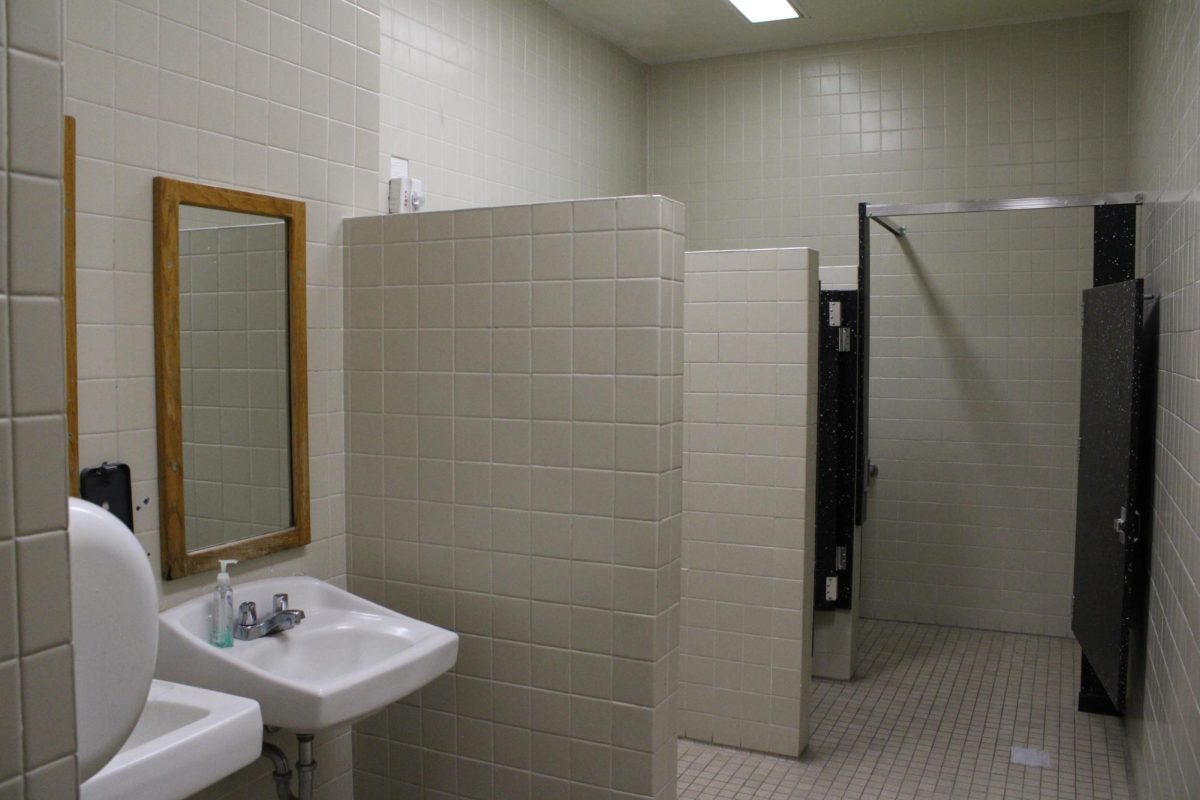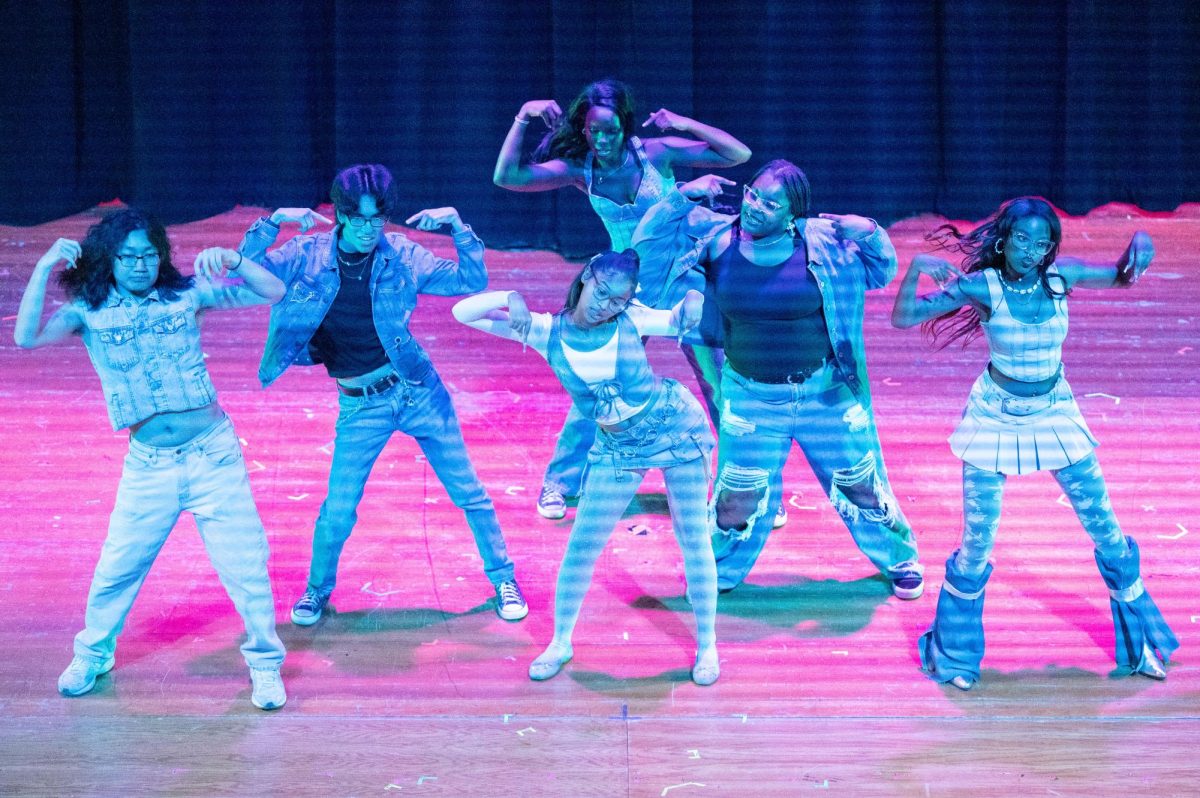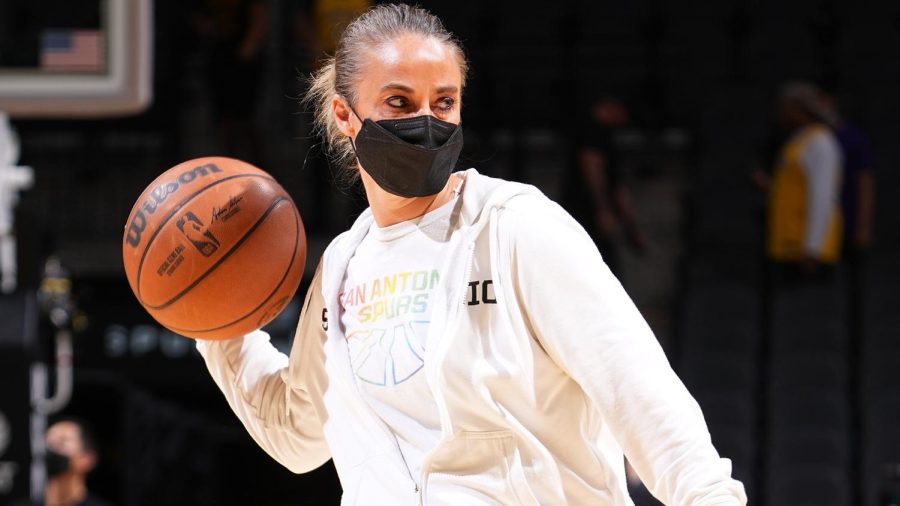Sexism runs rampant inside NBA franchises
Assistant coach Becky Hammon has broken many gender barriers within the NBA, but, despite her experience, an NBA franchise has yet to hire her as a head coach.
March 9, 2022
After San Antonio Spurs coach Gregg Popovich was ejected from a game in late December of 2020, assistant Spurs coach Becky Hammon filled in for him for the remainder of the game, becoming the first woman to act as a head coach in the NBA.
That is to say that in the more than seventy years leading up to that moment, every single NBA game had been coached by a male head coach. Hammon broke down a colossal barrier in coaching that game, and it seemed that the next step—an NBA franchise hiring the first female head coach—was soon to come.
That offseason, a number of head coaching positions opened up around the league, but by the time the season began in late fall, no women held any of them. The next offseason, more head coaching positions opened up, and this time, Hammon made history once more, but not in the way many had hoped; she was the first woman to become a finalist for an NBA head coaching job. In the end, of course, she was not hired.
In that offseason, two franchises made interesting head coaching hires. One of those was the Portland Trailblazers, the team for which Hammon was a finalist for the head coaching job. They ended up hiring former NBA player Chauncey Billups. The other was the Dallas Mavericks, who ended up hiring another former NBA player in Jason Kidd.
On the surface, these hires make sense. Both Billups and Kidd played point guard when they were in the league, and point guards often make a smooth transition to the head coaching spot. Both Billups and Kidd had been assistant coaches, and Kidd had even served as a head coach for a few years, first with the Brooklyn Nets, and then with the Milwaukee Bucks.
On closer inspection, however, it becomes apparent that these were questionable coaching hires at best, and disturbing ones at worst.
Billups served just one year as an assistant coach, so his main credentials rested on his career as an NBA player. That alone is not troubling; coaches are often hired based solely upon their playing careers. In fact, this is the main route for Black men to become head coaches in the NBA, which is a different problem altogether.
The problem with Billups lies in his past, with a 1997 sexual assault case which alleges that Billups was involved in the gang rape of a young woman during his rookie season. Billups was never convicted, but cases like this often go away with the defendant walking free based on flimsy or bad-faith arguments, and this one was no exception.
“[The defense of Billups and the others charged in the case] consisted of challenging the constitutionality of the law [the young woman] filed under,” journalist Diana Moskovitz wrote, “and, when that didn’t work, insisting all the sex with all the men was consensual and that [the young woman] was just trying to blackmail the famous men into giving her money so that she wouldn’t ruin their endorsement deals.”
The details surrounding this case are still murky—and this is not the place to re-litigate it—but it appears that Billups participated in the gang rape, and it is clear that he faced little to no consequences for his actions.
Kidd is not much better. In 2001, he pleaded guilty to charges of domestic violence against his wife, and his daughter has reported that he was verbally and physically abusive to her, as well as her other sibling and his wife.
Kidd does have more coaching experience than Billups, including serving as head coach for the Bucks for four years. However, that tenure is hardly a point of pride for Kidd. In those four years, the Bucks did not win a single playoffs series, and in the first season after he was fired, they made it to the conference finals.
More importantly, players reported that Kidd was an abusive head coach, taking what is often called a “winning mentality” to an unhealthy level.
One of the most notable stories from Kidd’s time as coach occurred in late December 2014, when Kidd decided to punish the team for losing what he felt was a winnable game by forcing them to attend practice on the next two days, which were Christmas Eve and Christmas Day.
At one of those practices, he forced the players to do pool exercises, despite the fact that half the players on the team could not swim. He also made them run exhausting drills as punishment, focusing much of his attention on Bucks big man Larry Sanders, yelling at him and calling him names.
Sanders broke down physically and mentally in that practice, suffering from full-body convulsions. He asked to go to the bathroom and instead left for the hospital. Sanders, who was twenty-six at the time and in his prime, has played in only five NBA games since that day.
It is worth noting that both of these coaches were sought after by each of these franchises’ respective superstars, and neither the Trailblazers nor the Mavericks are in any position to ignore the requests of their superstars. That said, when it comes down to it, the franchises are making these decisions, not the players.
It is also possible that these two coaches have reformed since these incidents occurred. Billups’s sexual assault case happened 25 years ago, when he was a rookie. Kidd’s abusive streak has had more recent occurrences, but his current season with the Mavericks is going well, and their have been no reports of any issues with him.
However, an NBA head coaching job is one of the most sought-after positions in the sports world. There are only 30 available, and there’s no reason a franchise should not be looking for the absolute best of the best. The idea that these franchises are hiring people like Billups and Kidd but not Hammon speaks to the troubling state of affairs within the NBA right now.
These franchises would rather hire men with histories of sexual assault or domestic violence and create a public relations nightmare for themselves than hire a woman with eight years of assistant coaching experience under perhaps the greatest NBA coach of all time.
This is not about checking a box or fulfilling a quota; Hammon—and many other female coaches—are qualified for head coaching positions in the NBA, and they are not receiving those positions. It should be no mystery as to why that is the case.
Hammon has now moved on from the Spurs organization to take a head coaching job in the WNBA with the Las Vegas Aces. Her view on this issue, though, is clear.
“If you want to hire me, you’ll find a reason to hire me,” she said. “And if you don’t want to hire me, you’ll find that reason, too.”
NBA franchises continue to find that reason, and they will continue to find it until there is real, institutional change in how these organizations are run, when the public pressure becomes to great to ignore and the league holds owners accountable for their actions. The NBA holds a reputation as one of the most progressive major sports leagues in the world, but its actions have failed to live up to that reputation for far too long.


















